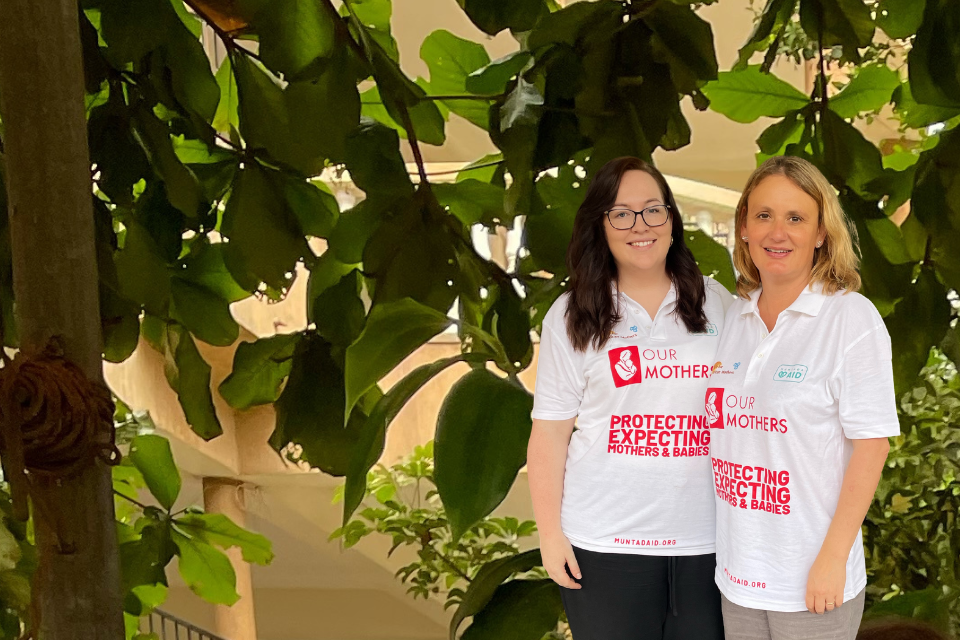The role of midwives is important throughout the world and there are increasingly significant opportunities for exchange of practice and resources. In the first of a series of articles, Nicola Lovett, Lead Midwife and Mollie Haskey, Better Births Transformation Midwife & Practice Development Midwife, Norfolk and Waveney Local Maternity and Neonatal System (LMNS) explain a twinning project with midwives in Uganda.
_______________________________________________________________________________________________________________________
International midwifery: why does it matter?
My name is Nicola, and I am the Lead Midwife for the Norfolk and Waveney Local Maternity and Neonatal System (LMNS). As a team we support the Maternity Transformation Programme, working with the Trusts to provide high quality and safe maternity care. I am passionate about midwifery, and in 2014 went to Uganda with the Royal College of Midwives (RCM), where I made connections with Ugandan Midwives, and this has led to the concept of further twinning opportunities with Imperial College, London, Life for African Mothers and Muntada Aid.
My name is Mollie and I’m Better Births Transformation Midwife & Practice Development Midwife for Norfolk and Waveney Local Maternity and Neonatal System. I support the team on implementation of the Better Births programme with education and staff development. This was my first time working abroad and it was such an invaluable experience sharing teaching and knowledge with the midwives of Uganda!
We travelled to Uganda on 21st May, 2022 for 11 days. Within that time, we kept a blog with our daily activities. Whilst in Uganda we helped run training workshops for midwives covering haemorrhage, evidence-based care, resuscitation, research, and respectful care. We utilised emergency simulations from Liverpool School of Tropical Medicines resources which they kindly granted us access to. Prior to leaving for the trip to Uganda we reflected on why the trip mattered and what we hoped to gain from it on our blog. Extracts of this are included below.
So, why does this trip matter?
As Mollie and I are in the final week of preparations for the twinning project to Uganda, I have been reflecting on why this trip matters. I was fortunate enough to travel to Uganda in 2014 with the RCM, on their Global Midwifery Twinning Project (GMTP). I had never been on a project such as this and was very grateful for the opportunity. It was here that I met Alison Perry, and we formed both a professional alliance and a friendship that has endured.
The GMTP was a 3-year multi-country partnership in the THET Health Partnership Scheme from 2012-2015 and achieved many outcomes for both the partner organisations and the volunteers who undertook the experience. Outcomes and achievements included development of strategic plans and educational tools, leadership, and improvements in midwifery care in participating sites. Benefits for volunteers were demonstrated to be personal and professional development, which was certainly the case for myself.
I was placed at Wakiso Level 4 Health Clinic, where I worked with women and midwives, and learnt how they managed to offer safe and effective care with few resources, minimal space, and limited support from other professionals. I had to re-visit my clinical skills and learn to rely on my hands, eyes and ears and instinct; it was a privilege to use just a pinnards to listen to the baby’s heartbeat and form that intense relationship between the women and her midwife. The clinical skills the midwives possessed were outstanding, we have much to learn from their ingenuity, tenacity, and dedication.
I was able to support the health clinic by bring teaching aids and tools and introduced processes to support the care they deliver. This included the roll out of emergency equipment and drugs in ‘grab bags’, so they no longer had to look for the drugs or equipment they needed when in an emergency; neonatal resuscitating equipment, medication for haemorrhage and medication for eclamptic fits.
So why now?
Over the past few years, Alison has been collaborating with Mutanda Aid and supported by Life for African Mothers, to create a further twinning project and programme of education and collaboration with our Ugandan partners. We have created a programme of education focusing on global issues of women health; haemorrhage, resuscitation, and respectful care, underpinned by evidence-based care and research. This education package, based on evidence from Liverpool School of Tropical medicine and the International Confederation of Midwives, will be co-delivered with the evolving faculty. This partnership working aims to be inclusive and responsive to needs, to leave a legacy of highly trained midwives and facilitators and joint ownership of the model. The faculty in the UK is made up of midwives from Imperial College London, and the Norfolk and Waveney Local Maternity Neonatal System (LMNS). Further faculty is made up from local midwives in Uganda; both clinical and at the University, supported by the President of Ugandan Midwives Association.
So back to my original question-why does this matter? This matters to me as an individual and professional. My experiences in 2014 have shaped the midwife I have become; I have grown in confidence and belief, passion, drive and tenacity. It matters to me as a manager; this collaboration has allowed me to extend the faculty invitation to Mollie, with the support of Norfolk and Waveney LMNS. The opportunities for us to be affiliated with this twinning programme will increase confidence and passion throughout the LMNS team and gives us an international perspective. This matters to Imperial College, and the Women’s Health Research Centre, as they develop a global twinning partnership, and it matters to midwives. We need to stand together, build alliances, and strive for the best care possible, based on evidence, taught in culturally sensitive manner with each other, as one.
Authors:
Mrs Nicola Lovett/ Lead Midwife Norfolk and Waveney LMNS/ RN RM BSc MA/ twitter @NicolaLovett2
Miss Mollie Haskey/ Better Births Transformation Midwife & Practice Development Midwife Norfolk and Waveney LMNS/ RM BSc/ twitter @vittoria_mollie
September 2022



